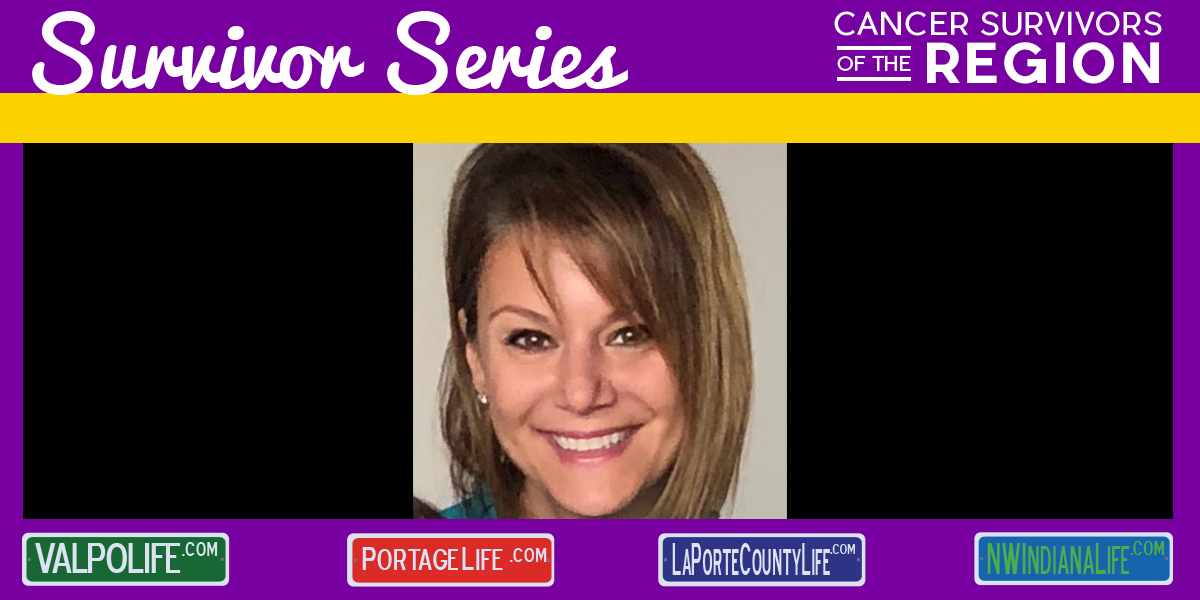“I was planning my life, where to go to college or where to go on spring break. When I was diagnosed with cancer, it was nothing I would ever expect.”
Two-time cancer survivor Tina Chip has remained positive despite the life-changing obstacles that have come her way. She is a survivor, battling two different cancers. Chip is a 29-year Hodgkin’s lymphoma and 24-year breast cancer survivor.
At 16, high school students are planning for prom or studying for tests, but for Chip, it was the start of her survival journey. She found a lump behind her ear and went to the doctor. He assured her everything was fine, but decided to do a full exam just in case. At 16, Chip was diagnosed with Hodgkin’s lymphoma.
“He found an enlarged lymph node by my clavicle that I never even felt. At the time, one of my good friends was going through Leukemia, so the word cancer wasn’t foreign to me. Everyone was telling me, ‘this is the most curable cancer, this is the cancer you want.’ And after hearing that so many times, I knew I could finish my treatment and be a survivor the rest of my life,” said Chip.
Chip is thankful that she had an incredible support system by her side. With the help of her family and peers, she never felt alone.
“If I didn’t have them, I wouldn’t have handled it as faithfully as I did,” said Chip. “They were my rock. If I wasn’t feeling well, they would bring the party to my house so I would never feel left out. They wanted me to feel as normal as a high school senior could. I could do whatever everyone else was doing, but on the side, still battling this disease.”
Chip had to have surgery and had to complete four months of radiation. She went to the hospital every day to have different fields of her body radiated. The cancer spread from half of her head to past her diaphragm. At the time, there were no services or programs that helped with her treatment process.
“This was 29 years ago. Nothing was promised back then as far as support groups or programming. Nothing had met the needs for someone who was as young as I was. I was grouped with adults,” said Chip. “I saw a medical oncologist who treated adults. I was treated where all of the adults were treated. I had to grow up pretty quick.”
For Chip, her biggest obstacle was to still be and feel like a teenager. She didn’t want to feel different and she wanted to be able to feel like a ‘normal’ teenager.
“Even when I have zero energy, I would try to find something that would force me to go to prom, or go on spring break, or even go to class. My biggest challenge was to try and do what everyone else was doing, and to try and graduate,” said Chip.
Her mentality remained positive. She had to instill in herself that she would finish treatment and that she would survive this. After beating cancer for the first time, she encountered the same battle again.
Chip had just finished college and was just beginning her career when she was diagnosed with breast cancer. She was diagnosed five years after her Hodgkin’s diagnosis. Her past radiation had damaged her healthy tissue that was still developing. Radiation can cause a secondary long-term cancer, whether it be breast, lung, or stomach.
“I had no family history of cancer and, when I was diagnosed, the first question I was asked was if I had a family history. Now, I am able to educate people because 80 percent of those diagnosed have no family history,” said Chip. “There is a major misconception that it’s a hereditary disease. Only 10-15 percent have a genetic correlation. A majority of women with breast cancer had no red flags.”
Chip wants everyone to know their bodies. She wants and encourages men and women to stay healthy and not to ignore if something is wrong.
“Our health care professionals only see us maybe once a year, and we see ourselves everyday,” said Chip. “We have to be our own advocate and know that no disease discriminates. It can hit you at any age and any ethnic group. We need to be aware of it.”
Chip focused on the positivity. She instilled in herself that she will survive, and that she will become a survivor for the rest of her life.
"When you are diagnosed with cancer, it is an uphill battle, but everything in life is a challenge, it’s just how you handle it,” said Chip. “We have good days and we have bad days. When you’re diagnosed, we focus on what’s not going well. Instead, we must focus on what is going well. Now, I am cancer free-29 years for Hodgkin’s and 24 years for breast cancer.”
